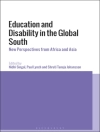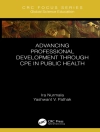The 20 chapters in Courts, Law, and Justice cover a wide range of sharply contested topics, including drug and gun control laws as well as the ins and outs of the criminal justice system as encountered by arrested suspects, during the trial process, and during the sentencing phase. This volume looks closely at Miranda rights and the impact of polygraphs and DNA testing; legal and procedural issues during prosecution, including exclusionary rules and double jeopardy; and sentencing and punishment for crimes, including for offenses such as DUI and sex offenses. The role of the victim during the prosecutorial process is also examined.
Addressing such engaging topics as asset forfeiture, DNA evidence, double jeopardy, expert witnesses and ‘hired guns, ‘ eyewitness testimony and accuracy, insanity defense, the jury system, mandatory sentencing, plea bargaining, polygraphs, three-strikes laws, and more, the authors of this volume all closely examine the development of the justice system and consider the key opinions supporting or contesting the laws and policies used during investigation, prosecution, and sentencing.
The Series
The five brief, issues-based books in SAGE Reference′s Key Issues in Crime & Punishment Series offer examinations of controversial programs, practices, problems or issues from varied perspectives. Volumes correspond to the five central subfields in the Criminal Justice curriculum: Crime & Criminal Behavior, Policing, The Courts, Corrections, and Juvenile Justice.
Each volume consists of approximately 20 chapters offering succinct pro/con examinations, and Recommended Readings conclude each chapter, highlighting different approaches to or perspectives on the issue at hand. As a set, these volumes provide perfect reference support for students writing position papers in undergraduate courses spanning the Criminal Justice curriculum. Each title is approximately 350 pages in length.
Sobre el autor
William J. Chambliss, professor of sociology at The George Washington University, was a critical sociological theorist whose research has ranged broadly from studies of law creation and the legal system to participant observation studies of juvenile gangs, organized crime, policing, and the impact of social movements on political and economic change. He served as president of the American Society of Criminology and the Society for the Study of Social Problems. He has received numerous awards for his research and teaching, including the prestigious Edwin H. Sutherland Award from the American Society of Criminology, the Lifetime Achievement Award from the American Sociological Association, the Bruce Smith Lifetime Achievement Award from the Academy of Criminal Justice Sciences, the PASS Award from the National Council on Crime and Delinquency, and the Lifetime Achievement Award from the Sociology of Law Section of the American Sociological Association. He has authored and edited over 35 books in sociology, criminology and criminal justice and numerous articles in social science journals.












